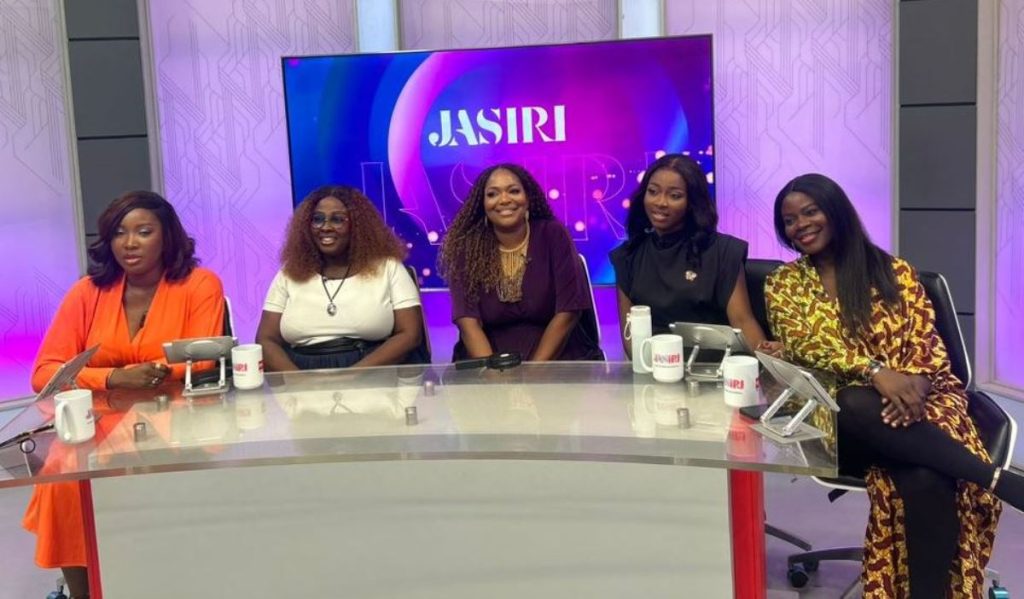Claudine Moore, Managing Director of Allison Africa, says the ongoing challenges with Western media narratives about Africa highlight how negative portrayals affect perceptions and economic opportunities on the continent.
During a conversation on News Central’s show JASIRI, Moore criticised the persistent stereotypes that frame Africa as a continent plagued by violence, political instability, and poverty, arguing that these views are not only misleading but harmful, influencing how the world engages with African nations, especially in terms of foreign investment and business opportunities.
Questioning Language and Narratives
Identifying the language used in some Western media as a key issue, she noted that words such as “violence” and “regime” are frequently used in African political contexts but not elsewhere. “Why do we never hear about the Biden regime or the Harris regime?” she asked, pointing to the double standards in global reporting and how such language undermines African governments and promotes a narrative of instability.
Her concerns echo findings from a recent report by Africa No Filter, titled The Cost of Media Stereotypes to Africa, which analysed biased coverage of African elections. The report found that 88% of media reports on Kenyan elections carried negative sentiments, compared to just 48% for similar elections in Malaysia. This skewed portrayal affects Africa’s image on the global stage, creating barriers to investment and development.
Moore also challenged the charity-focused depiction of Africa, which frequently relies on images of poverty and starvation. While acknowledging that such issues exist, she stated that these depictions lack balance and perpetuate negative stereotypes. “Without balance, these narratives harm more than they help,” she said, sharing her personal experience of showing friends pictures of Lagos, only for them to ask, “Where are the animals?” Moore explained that such questions reflect deep-rooted misconceptions about Africa.
Economic Consequences of Media Bias
The conversation on JASIRI also touched on the economic impact of negative media portrayals. According to Africa No Filter’s report, biased reporting creates a “risk premium” on African investments, leading to higher borrowing costs. The study estimates that African nations spend $4.2 billion annually on debt servicing due to these misperceptions. A shift towards more balanced media coverage could save African economies millions, reducing interest rates and unlocking critical investment.
To put the figure in perspective, the report noted that $4.2 billion could fund education for over 12 million children, provide immunisations for 73 million children, or supply clean drinking water to two-thirds of Nigeria’s population. “The world’s view of Africa must evolve beyond outdated and harmful stereotypes,” Moore stressed, underscoring the importance of changing these narratives not just for cultural reasons, but for tangible economic benefits.
Shifting Towards African-Led Narratives
Moore commended News Central’s “Africa First” tagline as a positive step towards African-led storytelling adding that for too long, Africa’s stories have been told through external lenses, stripping Africans of the power to define their own realities. “The world has changed—it’s time for us to be at the centre of our own narratives,” she said.
A critical part of this change, Moore suggested, lies in how Africans use social media to shape perceptions. She encouraged Africans to share positive stories and images, highlighting the influence of cultural movements like Afrobeat, which have already started shifting global perceptions of Africa.
The African Union’s plans to establish an Africa Credit Rating Agency further reflect the growing momentum to challenge these biases. The agency aims to provide a fairer assessment of African economies, countering the pessimistic assumptions often made by international rating agencies. Moore expressed support for such efforts, seeing them as essential steps towards redefining Africa’s global standing. This was also noted in a recent report by Allison highlighting pan-African businesses and organisations that possess the cultural intelligence and local market expertise needed to succeed in Africa’s dynamic and fast-growing markets.
Reclaiming Africa’s Future
Moore’s remarks on JASIRI reflect a growing recognition of the need for Africa to reclaim its narrative, not only to correct misconceptions but also to unlock economic potential. “You’re mysterious to us; we’re not mysterious to ourselves,” she said, capturing the disconnect between how Africa is perceived externally and how it is experienced by those who live there.
The Africa No Filter report underscores the urgency of this shift. As Moky Makura, Executive Director of Africa No Filter, noted, “Challenging negative stereotypes is not just about changing perceptions—it’s about enabling Africa to thrive.” The report calls for collaboration between media, finance, and governments to foster more accurate and equitable portrayals.
For Claudine Moore, the message is clear: Balanced narratives are essential for Africa’s future. With credible local media platforms leading the conversation, there is hope for a shift towards more representative storytelling that not only reflects Africa’s realities but also paves the way for greater economic and social progress.
Watch more:

